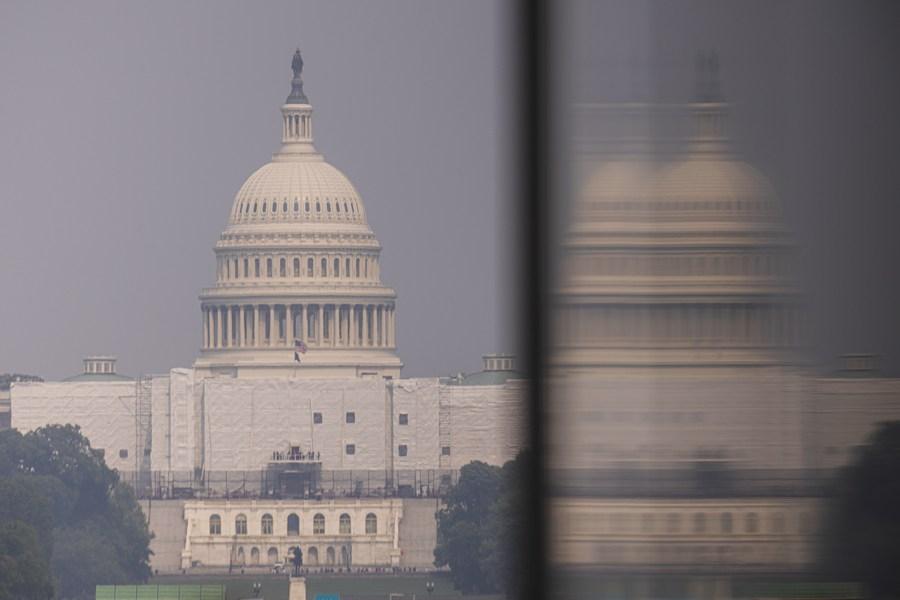
The US Capitol building is shrouded in haze in Washington, DC, the United States, on June 7, 2023. [Photo/Xinhua]
This is an editorial from China Daily.
The United States is becoming ever more explicit about its perception of China being the foremost threat to its position as the world's leading power. This was demonstrated once again by the 2024 United States National Counterintelligence Strategy that President Joe Biden signed on Thursday.
As this perception has gained traction in Washington's decision-making circles during the last two administrations, it has spilled throughout US society, making any hopes of improving ties subject to second thoughts and thus little more than wishful thinking.
In a follow-up to the Biden administration's national security strategy and plan of action for the Asia-Pacific, the latest counterintelligence strategy retains its focus on China as a key strategic rival. According to the document, the US faces a dire intelligence landscape where "aggressive and capable foreign intelligence adversaries" — including China — are "actively seeking to cause grave harm to the United States, its people, and institutions".
Such a distorted world view has been emblematic of the Biden administration and, as well as setting the tone of the administration's overall China policy, it has created a conducive atmosphere in Congress for the hyping up of a threat from China, with representatives vying across the aisle to outdo each other with outrageous claims in a bid to claim 15 seconds of the public's attention. The frequency of the allegations is like the dripping of a faucet, which speeds up if left to its own devices. And there may be no turning it off anytime soon, as no competent plumber seems forthcoming with a wrench. As a result, instead of the necessary faucet-fixing indispensable for better China-US relations, Beijing and Washington may have to concentrate more on preventing the anti-China allegations from inundating the relationship to the point of collapse, potentially heralding the worst-case scenario of conflict.
In their official visions of bilateral ties, both sides keep talking about healthy, constructive relations. But things appear different in the real world. No matter how often Beijing assures Washington of its desire for friendly relations, the latter remains unconvinced, if not more suspicious. So much so that Beijing believes Washington is dedicated to curtailing the country's development and negating its rise to be a global power. Washington meanwhile is convinced that Beijing is committed to ending the US' global leadership. While the former insists its vision of a better world is based on refining the current international order, the latter regards it as attempting to create one free of US leadership. Through such a prism, Washington sees no alternative but to target Beijing in every realm of its "strategic competition".
Driving the US Commerce Department's proposal of a ban on Chinese software in autonomous and connected vehicles is the same viewpoint. The new rule will reportedly bar Chinese software in vehicles in the US with Level 3 automation and above. This would effectively also ban testing on US roads of autonomous vehicles produced by Chinese companies. The US government may also propose barring vehicles with Chinese-developed advanced wireless communication modules from US roads.
The US should earnestly abide by market principles and international trade rules, and create a level playing field for companies from all countries. But Washington is no longer taking such matters as purely economic issues. It is increasingly putting everything related to China in a "national security" basket, as it seems unable to break out of the distorted information loop it has created.

 中文
中文



